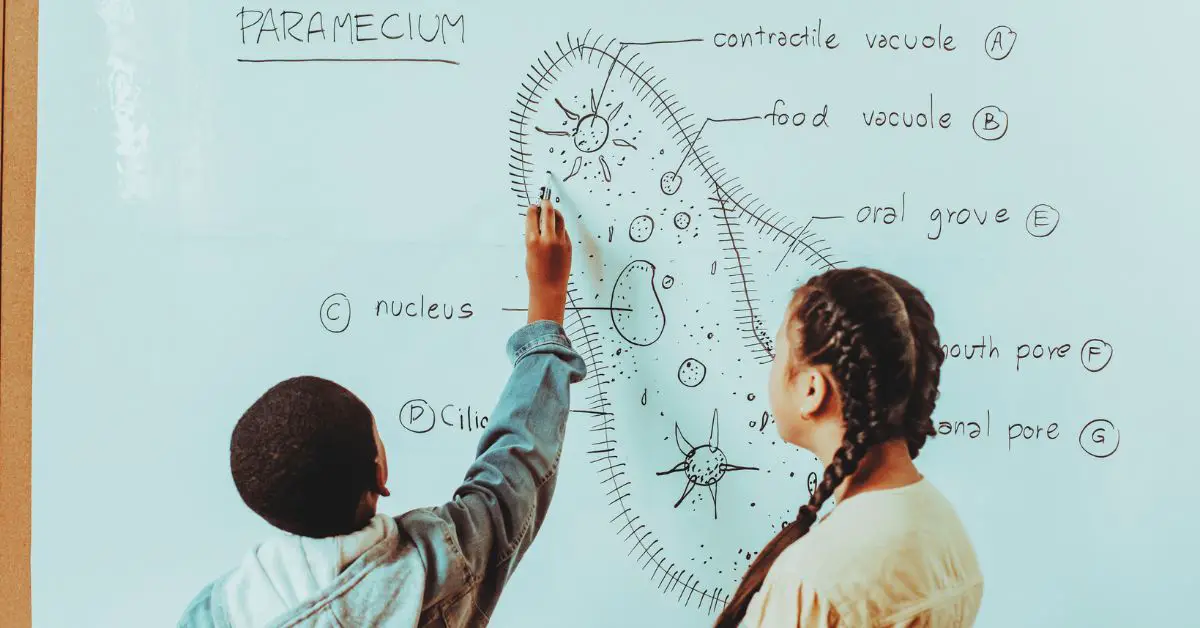Want to know more about the Best Schools For Biology In the US and make an informed decision? Here is a good place to start.
Biology is an ever-evolving field encompassing a wide range of disciplines, from genetics and biochemistry to ecology and evolutionary biology.
In this post, we will highlight the top 25 universities in the US that offer exceptional programs in the field of biology. These schools are known for their outstanding faculty, state-of-the-art research facilities, and opportunities for hands-on learning.
This list is sure to provide valuable information to a high school student considering a career in biology or a current college student looking to transfer to a top-ranked program. Let’s dive in and explore the best schools for biology in the US.
Please note that schools are selected based on our criteria (at the end of the article), ranked by the latest acceptance rate.
Table of Contents
#25. University of Utah


- Acceptance rate: 95%
- Average entry score: 1130-1350 SAT or 22-29 ACT
- Student-to-faculty ratio: 18:1
- Estimated cost of attendance (tuition and fees): $25,179-$46,752
- Average earning potential for graduates: $28,679 (College Factual)
University of Utah is a top school for biology students who want to get involved in research. The department of biology has a long-standing tradition of encouraging undergraduate research. All students complete an independent research project before graduate research.
Students benefit from the university’s extensive research facilities and its proximity to many natural areas. They may also get involved in research through internships and independent study opportunities.
Overall, the biology department at the University of Utah provides students with a rigorous, hands-on education that will prepare them for careers in medicine, dentistry and other health fields.
The school also has a strong record of placing graduates in medical or dental school as well as graduate programs at prestigious institutions such as Harvard University, Johns Hopkins University and Stanford University.
#24. University of Oregon


- Acceptance rate: 93.4%
- Average entry score: 1110-1330 SAT or 22-30 ACT
- Student-to-faculty ratio: 18:1
- Estimated cost of attendance (tuition and fees): $31,091-$56,543
- Average earning potential for graduates: $27,200 (College Simply)
This unique biology program offers a broad range of courses and research opportunities. You will explore topics ranging from molecular and cellular processes to population dynamics through both hands-on laboratory projects and classroom learning.
Here, the faculty members are dedicated teachers who want their students to succeed. They will work with you one on one or in small groups to ensure you understand the material. These teaching professionals also have a strong focus on research, so you will be able to work with them on current projects or develop your own.
The environment at Oregon State is friendly and supportive, but it is also competitive. You will be surrounded by other talented students who want to succeed just as much as you do. This can help motivate you to work harder and achieve your goals.
#23. University of Arizona


- Acceptance rate: 87:3%
- Average entry score: 1110-1360 SAT or 21-29 ACT
- Student-to-faculty ratio: 17:1
- Estimated cost of attendance (tuition and fees): $30,416-$54,443
- Average earning potential for graduates: $25,700 Starting Salary (College Simply)
The University of Arizona is located in Tucson, which is a city with a population of just over 500,000 people. Tucson provides students with easy access to the desert and mountains, making it an ideal place for biology students to study.
The university’s Department of Biological Sciences offers an undergraduate degree program as well as several graduate degrees in disciplines related to biology.
At this university, you’ll have the chance to study a wide range of marine organisms, including cephalopods and fish. The school’s Marine Science Program also offers opportunities for undergraduate and graduate students to work on research projects with oceanic institutions around the world.
#22. University of Iowa


- Acceptance rate: 86.2%
- Average entry score: 1130-1350 SAT or 22-29 ACT
- Student-to-faculty ratio: 15:1
- Estimated cost of attendance (tuition and fees): $25,376-$47,339
- Average earning potential for graduates: $32,374-$77,060
The University of Iowa has a highly-rated biology department offering several majors within the biology field. Students interested in marine science programs have the option to study oceanography or fisheries management.
At this institution, students have the chance to work with faculty members on projects that focus on the health of aquatic ecosystems and how they will be impacted by climate change. They may also participate in exchange programs with other universities.
With a wide range of career opportunities, the department of biology at the University of Iowa is one of the best in the country and offers students.
Similar articles like this:
#21. University of Colorado-Boulder


- Acceptance rate: 79.6%
- Average entry score: 1170-1390 SAT or 25-31 ACT
- Student-to-faculty ratio: 17:1
- Estimated cost of attendance (tuition and fees): $30,452-$57,702
- Average earning potential for graduates: $28,300 (College Factual)
The University of Colorado-Boulder is a public research university located in Boulder, Colorado. Its biology department has a strong reputation for research and undergraduate education. The department’s faculty members are known for their innovative, ground-breaking work in the fields of genetics, cell biology, ecology and evolution.
Students in the biology program at CU Boulder have access to state-of-the-art laboratories and equipment as well as opportunities for hands-on experience through research projects with faculty members. They can also participate in fieldwork in various locations around the world through summer internships or graduate school programs that allow them to study abroad.
#20. University of Minnesota-Twin Cities


- Acceptance rate: 73.2%
- Average entry score: 1330-1500 SAT or 27-32 ACT
- Student-to-faculty ratio: 17:1
- Estimated cost of attendance (tuition and fees): $23,110-$52,088
- Average earning potential for graduates: $30,340 (College Factual)
The University of Minnesota-Twin Cities is one of the top public research universities in the United States. It offers students a variety of majors and minors, as well as graduate degrees in a wide range of fields.
This institution of higher learning also has an extensive marine science program featuring more than 100 faculty members. Students also benefit from the university’s highly-ranked academic reputation.
With access to several libraries and a range of research facilities, this university has a strong commitment to providing students with an excellent education.
#19. University of California-San Francisco

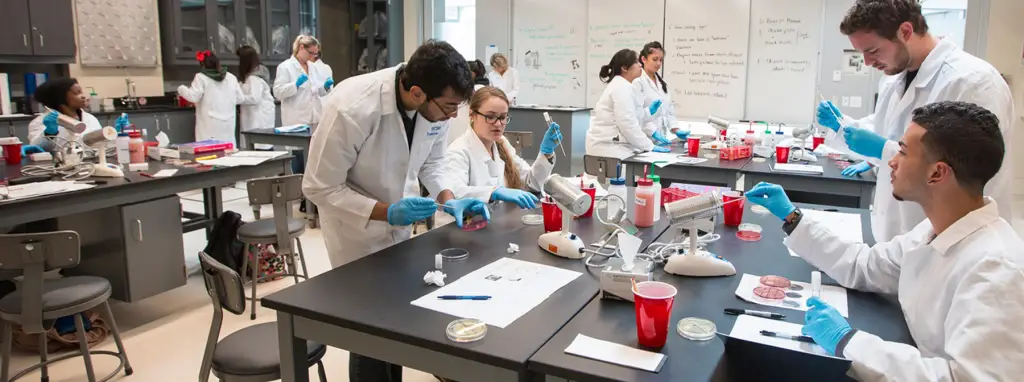
- Acceptance rate: 71%
- Average entry score: 1130 SAT
- Student-to-faculty ratio: 4:1
- Estimated cost of attendance (tuition and fees): $65,136-$77,854
- Average earning potential for graduates: $62,277
The research-focused biology program at UCSF centers on the needs and interests of students. You will be able to work with well-trained faculty members. They will guide you through all aspects of your education, from learning about current research projects to developing your own ideas for future research endeavors.
This way, you will get the most out of your experience at UCSF while also ensuring you are prepared for post-graduation life in academia or industry.
UCSF is also one of the top research universities in the nation. Their researchers have made breakthroughs that have changed our understanding of biology and medicine. Therefore, this biology program will expose you to some of the best minds in their fields, giving you access to cutting-edge information as well as valuable networking opportunities.
#18. University of Vermont


- Acceptance rate: 63.5%
- Average entry score: 1240-1410 SAT or 29-33 ACT
- Student-to-faculty ratio: 18:1
- Estimated cost of attendance (tuition and fees): $35,998-$61,442
- Average earning potential for graduates: $32,201 (College Factual)
The biology department at the University of Vermont offers a wide range of courses, including introductory classes and advanced research seminars. Students can also take advantage of research opportunities in areas such as biochemistry, molecular biology, ecology and evolutionary biology.
This school is committed to preparing students for various careers in the field of biology.
While here, students can take advantage of career services and participate in professional development opportunities, including networking events and workshops.
Overall, this school offers a challenging, supportive environment for students interested in the study of biology.
Similar articles like this:
#17. University of Wisconsin-Madison


- Acceptance rate: 60.4%
- Average entry score: 1300-1480 SAT or 28-32 ACT
- Student-to-faculty ratio: 18:1
- Estimated cost of attendance (tuition and fees): $27,484-$55,372
- Average earning potential for graduates: $31,100
The Biological Sciences program at UW-Madison is one of the best undergraduate programs in the country. This program will give you a solid foundation in all aspects of biology, including research, medicine, environmental science and more.
You’ll also have access to some of the top professors at UW-Madison who are leaders in their fields. During your time at UW-Madison, you’ll have the opportunity to participate in research projects that will help you build your resume and prepare for graduate school.
Why study at the University of Wisconsin, Madison?
#16. University of Illinois-Urbana-Champaign

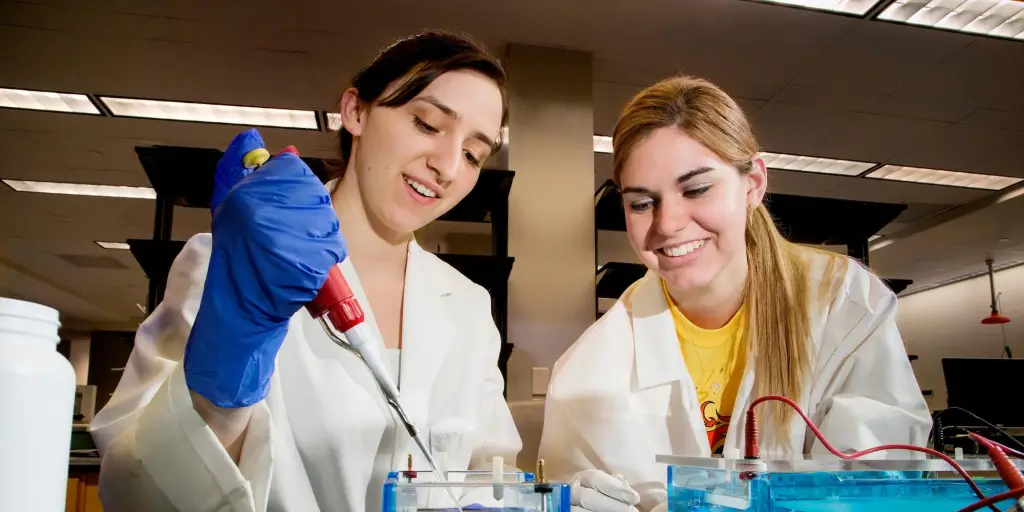
- Acceptance rate: 59.7%
- Average entry score: 1210-1470 SAT or 27-33 ACT
- Student-to-faculty ratio: 21:1
- Estimated cost of attendance (tuition and fees): $33,060-$50,510
- Average earning potential for graduates: $26,400 (College Simply)
At the University of Illinois-Urbana-Champaign, you will find a biology program that is focused on research. The university has an extensive network of researchers and facilities that give students access to modern equipment and technology.
Therefore, this biological sciences program equips students with the skills they need to enter a variety of fields.
Also, the university offers a variety of opportunities for students to gain experience outside of the classroom, including internships and research.
What’s it like to study biology at the University of Illinois, Urbana-Champaign?
#15. University of California-Santa Cruz
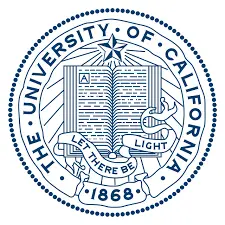

- Acceptance rate: 58.6%
- Average entry score: 1400 SAT or 31 ACT
- Student-to-faculty ratio: 23:1
- Estimated cost of attendance (tuition and fees): $14,070-$43,824
- Average earning potential for graduates: $27,600-$74,558 (Salary.com)
The University of California at Santa Cruz is a public, research-intensive university that offers a wide variety of undergraduate and graduate programs. It’s located on the edge of Silicon Valley and is one of only three UC schools not located in the state capital, making it an ideal place to study biology.
The department offers a diverse selection of courses while also providing students with resources, such as lab space and equipment.
This university is also home to the Long Marine Lab-one of the oldest marine research facilities in the world. The lab’s location along Monterey Bay provides students with an excellent opportunity to gain hands-on experience working with marine organisms and ecosystems.
#14. University of Washington


- Acceptance rate: 53.5%
- Average entry score: 1220-1470 SAT or 29-34 ACT
- Student-to-faculty ratio: 9:1
- Estimated cost of attendance (tuition and fees): $30,640-$58,470
- Average earning potential for graduates: $30,000 (College Simply)
The biological sciences faculty and staff have an impressive track record of producing successful graduates. This department has an excellent reputation, both within the university and around the country.
The biology program at this institution is well-funded and provides students with a variety of opportunities to gain experience outside of the classroom.
Other than a few exceptions, the faculty are very accessible and willing to help students with their research. The university also provides students an opportunity to get involved in research through summer research programs.
What’s it like to study biology at the University of Washington?
Similar articles like this:
#13. University of California-San Diego


- Acceptance rate: 34.2%
- Average entry score: 1270-1480 SAT or 28-34 ACT
- Student-to-faculty ratio: 12:1
- Estimated cost of attendance (tuition and fees): $36,061-$65,835
- Average earning potential for graduates: $43,000 (UC San Diego)
Other than choosing from a variety of courses, students at the University of California, San Diego can also gain experience working with experts.
You will have the opportunity to work with faculty members on projects that explore various aspects of biology, ranging from cellular processes to global health issues.
The biology department at UC San Diego has a solid commitment to teaching and research.
Ranked among the top in the nation for research productivity, UC San Diego offers you access to some of the most cutting-edge technologies in this field.
#12. University of Texas-Austin


- Acceptance rate: 28.7%
- Average entry score: 1230-1500 SAT or 29-34 ACT
- Student-to-faculty ratio: 18:1
- Estimated cost of attendance (tuition and fees): $28,928-$57,512
- Average earning potential for graduates: $29,100 (College Simply)
The faculty at UT Austin is regarded as one of the best in the country. UT-Austin’s biology experts are constantly working on research projects that are pushing the boundaries of biology.
The biological sciences curriculum is crafted to give students a well-rounded education. With access to labs, you’ll conduct your own research under supervision from professors who are experts in their fields.
Besides having access to some of the best faculty in the country, UT Austin also has some of the most cutting-edge research facilities in the world. Students have access to state-of-the-art equipment and technology that allows them to conduct their own research under supervision from experienced professionals.
What’s it like to study at UT Austin?
#11. University of North Carolina-Chapel Hill

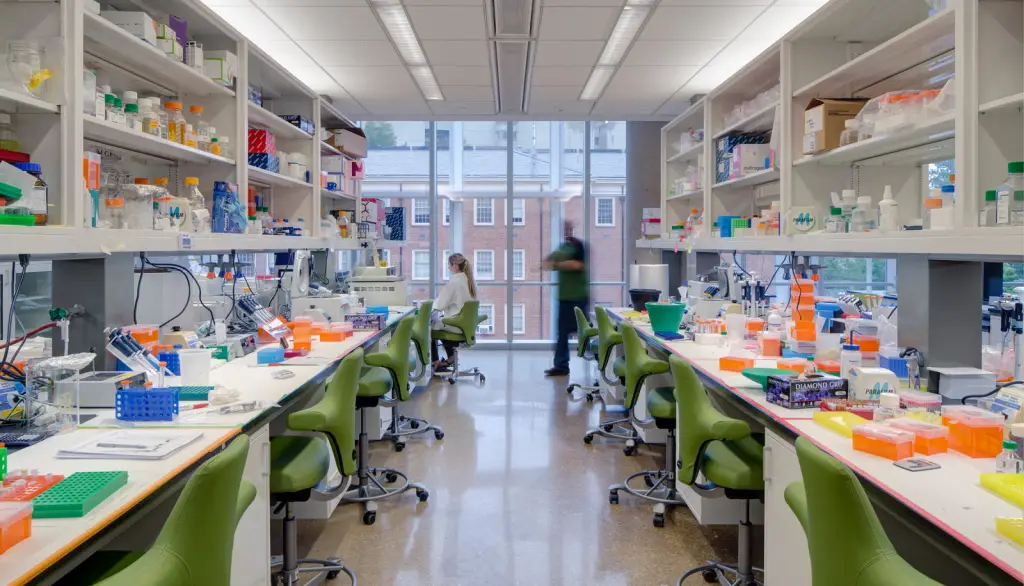
- Acceptance rate: 20.4%
- Average entry score: 1310-1500 SAT or 29-33 ACT
- Student-to-faculty ratio: 13:1
- Estimated cost of attendance (tuition and fees): $24,546-$51,725
- Average earning potential for graduates: $30,700 (College Simply)
The department of biology at the University of North Carolina, Chapel Hill provides students with a well-rounded education that prepares them for careers in science.
Here, students have the chance to choose from a variety of degree options, including bachelor’s and master’s degrees in biology. They can also pursue a doctorate in the field. Each program comes with an array of course offerings.
Students may also engage in internships with local businesses and organizations to gain valuable experience related to biology.
#10. University of Michigan-Ann Arbor
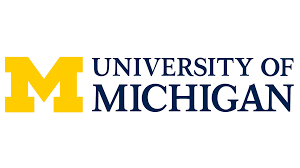
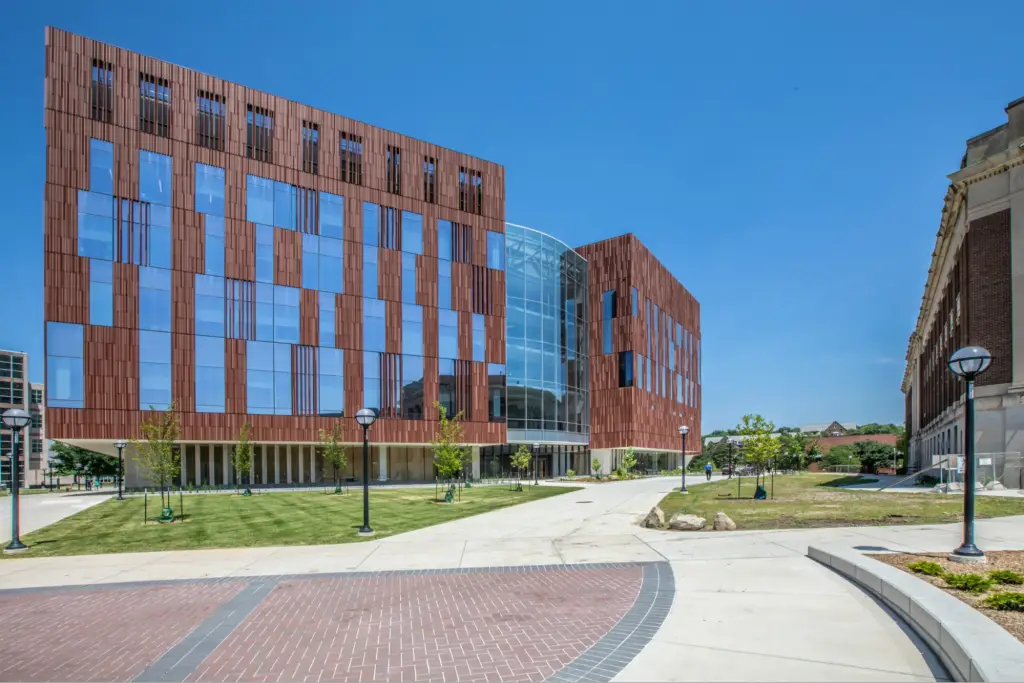
- Acceptance rate: 20.2%
- Average entry score: 1360-1530 SAT or 31-35 ACT
- Student-to-faculty ratio: 15:1
- Estimated cost of attendance (tuition and fees): $32,272-$69,326
- Average earning potential for graduates: $24,623 (College Factual)
At the University of Michigan-Ann Arbor, students can choose from a wide range of biological sciences courses. In addition to courses that prepare students for careers in the medical field, there are also many opportunities for students interested in research or academia.
Boasting a long-standing reputation for excellence, the University of Michigan-Ann Arbor is a top choice for students who are interested in pursuing a science major. The biology department here offers a wide range of coursework that prepares students for a variety of careers.
What’s it like to study biology at the University of Michigan, Ann Arbor?
Similar articles like this:
- 25 Best Dental Schools In The US
- 25 Best Schools For Geology In The US
- 25 Best Schools For Marine Biology In The US
#9. University of California-Berkeley


- Acceptance rate: 14.4%
- Average entry score: 1415 SAT
- Student-to-faculty ratio: 17:1
- Estimated cost of attendance (tuition and fees): $41,878-$71,632
- Average earning potential for graduates: $51,600 (College Simply)
The University of California-Berkeley is one of the best universities in the country, making it a great place to study biology. This school has a large and diverse faculty, including many leading researchers in their respective fields.
The biology department offers an array of courses geared toward biological sciences majors as well as other students interested in medicine or research careers. UC Berkeley also has strong programs in biochemistry, molecular and cell biology, microbiology, plant biology and marine science.
With many options for students interested in the biological sciences, it’s no surprise that this school has produced so many successful researchers. The biology department at UC Berkeley is committed to the success of its students and offers a variety of academic services, including tutoring and advising.
What’s it like to study biology at the University of California, Berkeley?
#8. University of Alabama-Tuscaloosa


- Acceptance rate: 12%
- Average entry score: 1280 SAT or 31 ACT
- Student-to-faculty ratio: 23:1
- Estimated cost of attendance (tuition and fees): $32,054-$53,364
- Average earning potential for graduates: $30,000-$74,816 (ZipRecruiter)
This institution offers undergraduate and graduate degrees in biology. Their undergraduate program provides students with a strong foundation in the basic principles of biology. It also prepares them for careers in fields such as medicine, research, and education.
Complete with a diverse array of research opportunities, dedicated faculty, and state-of-the-art facilities, the University of Alabama –Tuscaloosa is an excellent environment for students looking to pursue a career in biology.
The department of biology has a broad range of research interests, including genetics, evolution, ecology, and cellular and molecular biology. An experienced faculty is another key factor worth mentioning about this institution.
These biology experts are actively involved in research, giving students the opportunity to participate in research projects, as well.
#7. University of California-Los Angeles (UCLA)


- Acceptance rate: 10.8%
- Average entry score: 1290-1520 SAT
- Student-to-faculty ratio: 18:1
- Estimated cost of attendance (tuition and fees): $16,847-$31,949
- Average earning potential for graduates: $33,200 (College Simply)
UCLA’s biology program combines the best of both worlds. Students can learn from some of the most distinguished researchers in the field while also having access to modern teaching facilities and laboratories.
The university has an extensive research portfolio that includes fields, such as genomics, developmental biology and neuroscience. Students can get involved in research at one of the many laboratories that are part of the biology program.
Lastly, the University of California, Los Angeles has a strong commitment to diversity and inclusion, as evidenced by its efforts to recruit and retain underrepresented minority students.
#6. Cornell University


- Acceptance rate: 8.7%
- Average entry score: 1400-1560 SAT or 33-35 ACT
- Student-to-faculty ratio: 9:1
- Estimated cost of attendance (tuition and fees): $80,287
- Average earning potential for graduates: $36,200 (College Simply)
Cornell is a world-class research university with an extensive network of libraries, museums and collections. The Department of Biological Sciences has over 400 graduate students and several dozen faculty members who are actively conducting research in the areas of molecular biology, genetics, developmental biology and ecology.
Cornell is also a great place to study biology because of its location in New York City. The city has one of the most diverse populations in the world. It offers many opportunities for students to gain valuable experience working with people from different cultures.
Another advantage of studying at Cornell University is the availability of resources. You’ll have access to museums and botanical gardens. If you want to study biology at a university known for its research and innovation, consider attending Cornell University.
Similar articles like this:
- 25 Best Schools For Agricultural Sciences In The US
- 25 Best Schools For Renewable Energy Degrees In The US
- 25 Best Engineering Schools In The US
#5. University of Chicago

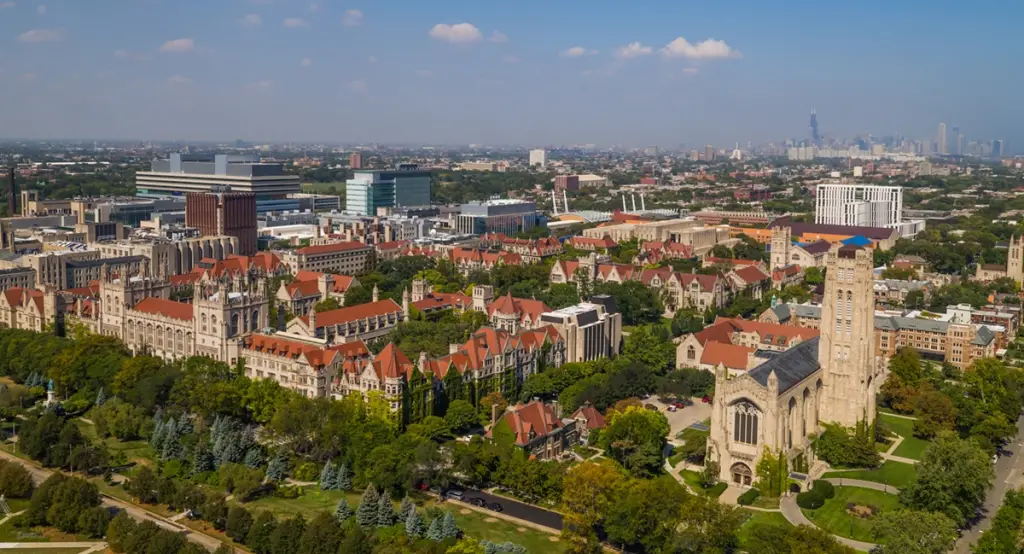
- Acceptance rate: 6.5%
- Average entry score: 1020-1600 SAT
- Student-to-faculty ratio: 5:1
- Estimated cost of attendance (tuition and fees): $81,531
- Average earning potential for graduates: $24,335 (College Factual)
The biology program at the University of Chicago is designed to prepare students for careers in research, healthcare and biotechnology. Its curriculum includes courses in genetics, neuroscience and microbiology as well as science communication skills like data analysis and critical thinking.
The university’s strong focus on research means that students have ample opportunities to gain hands-on experience in a variety of labs. This university also allows students to explore the intersection of life sciences and technology.
With a program that combines theory with hands-on experience, the University of Chicago is one of the top places to earn your biology degree.
#4. Princeton University


- Acceptance rate: 4.4%
- Average entry score: 1570 SAT or 35 ACT
- Student-to-faculty ratio: 5:1
- Estimated cost of attendance (tuition and fees): $78,490
- Average earning potential for graduates: $38,447
If you’re looking for an Ivy League biology degree, you can’t go wrong with Princeton University. The school is widely regarded as one of the best institutions in the United States, boasting a number of impressive accolades.
Its biological sciences department offers students an opportunity to train with some of the most respected faculty members in the field. The department is also home to the Lewis-Sigler Institute for Integrative Genomics. This aims to bridge the gap between research and education.
You’ll also benefit from the university’s extensive network of facilities and resources, including the Princeton Neuroscience Institute, which is affiliated with nearby hospitals. The school also boasts a number of research centers and institutes that focus on fields like cancer biology, neuroscience and infectious disease.
#3. Massachusetts Institute of Technology (MIT)

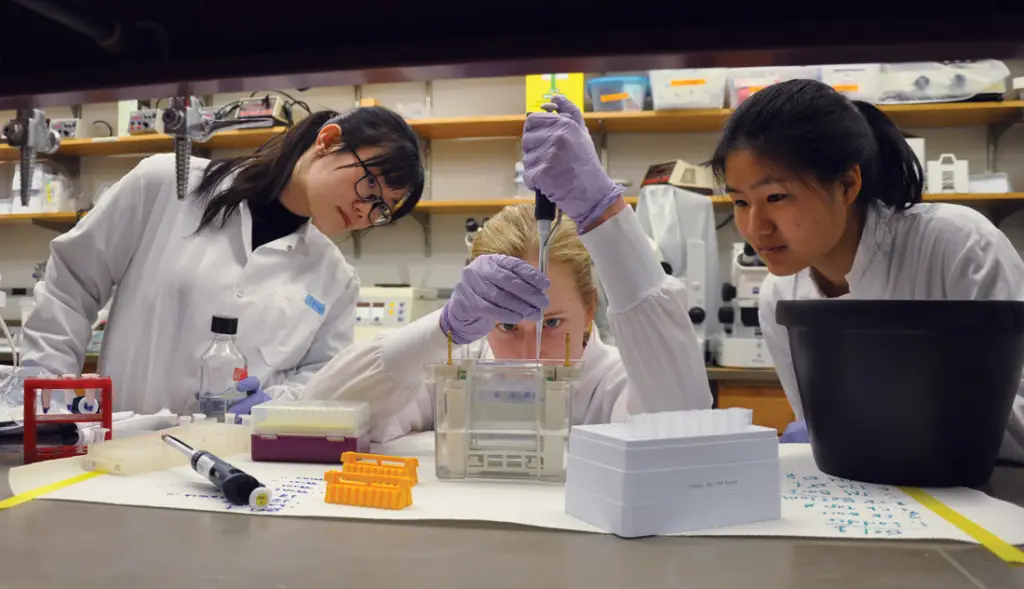
- Acceptance rate: 4%
- Average entry score: 36 ACT or 1570 SAT
- Student-to-faculty ratio: 3:1
- Estimated cost of attendance (tuition and fees): $77,570
- Average earning potential for graduates: $46,373 (College Factual)
The MIT biology program provides an excellent education for students interested in research and academia. The curriculum covers a wide range of topics, including cell biology, genetics and evolution.
MIT offers students hands-on experience with a wide range of research opportunities. The school has many laboratories and facilities, including the Whitehead Institute for Biomedical Research, which houses more than 500 scientists working on over 100 different research projects.
The MIT biology program is well-regarded by employers. The school has produced many successful alumni who have earned Ph. D.s in the field and currently work as researchers, professors, medical doctors and scientists.
What’s it like to study biology at MIT?
#2. Harvard University


- Acceptance rate: 4%
- Average entry score: 1460-1580 SAT or 33-35 ACT
- Student-to-faculty ratio: 7:1
- Estimated cost of attendance (tuition and fees): $78,200
- Average earning potential for graduates: $43,328 (College Factual)
Harvard University is considered one of the best universities for biological sciences because of its reputation for academic excellence, cutting-edge research, and the breadth of research programs offered by its biology department.
Harvard’s biology department also offers excellent educational opportunities for undergraduate and graduate students.
Undergraduates can choose from a wide range of courses, including introductory and advanced courses in the biological sciences. Or the interdisciplinary courses that explore the intersection of biology with other fields such as physics and computer science.
This biology department has a long history of being at the forefront of research in its field. The university is home to distinguished scientists who have made significant contributions to our understanding of life sciences.
If you want to study in a dynamic atmosphere where you can learn from and interact with some of the top minds in biology, then this is the place for you.
What’s it like to study at Harvard University?
#1. Stanford University


- Acceptance rate: 3.9%
- Average entry score: 1470-1570 SAT or 34-35 ACT
- Student-to-faculty ratio: 5:1
- Estimated cost of attendance (tuition and fees): $78,898
- Average earning potential for graduates: $36,722 (College Factual)
Stanford University is one of the top-ranked colleges in the nation, and its biology program reflects that reputation. The biology program at Stanford University is a highly selective major that prepares students for a wide range of careers.
The biology department offers courses in molecular, cellular and developmental biology, as well as evolution and ecology. With so many options available, students can tailor their curriculum to meet their specific interests.
This department also has a wide variety of research opportunities and internships that allow students to gain valuable experience while they earn course credit. Students have the opportunity to work on projects in a variety of fields, including biotechnology, ecology and evolution as well as human health.
What’s it like to study biology at Stanford University?
Conclusion
There are many excellent schools for biology in the US. Each has their own strengths and unique offerings. The schools listed in this blog post are some of the top-ranked institutions for biology. They are known for their outstanding programs, research facilities, and opportunities for students.
Whether you’re an undergraduate looking to start your career or a graduate student looking to continue your education, one of these schools is sure to have a program that fits your needs. It is important to consider factors such as location, cost, research opportunities, and career prospects when choosing a school for biology.
You may also visit the campus, talk to current students, and research the school’s curriculum and resources before making a decision. The best school for you will depend on your personal preferences and goals, but hopefully, this list provides a good starting point for your search.
Selection Criteria
Here are the selection criteria for our list of the 25 best schools for biology in the US:
- Reputation and ranking of the school: We looked for schools that have a strong reputation and high ranking in the field of biology.
- Faculty expertise and specialization: We researched the faculty members and their areas of expertise to ensure that the school has professors with relevant expertise in the major areas of biology.
- Facilities, resources, and access to technology: Our team considered the quality of the school’s facilities and resources, such as labs, equipment, and libraries. We also considered the school’s access to the latest technology and equipment in the field of biology.
- Cost and financial aid: Our research team took into account the cost of attendance and the availability of financial aid options for students.
- Diversity and inclusivity: We considered the school’s diversity and inclusivity. A diverse and inclusive environment will enhance your educational experience.
- Graduation and placement rate: We looked at the school’s graduation and placement rate to see how well students fare after graduation.
- Extracurricular activities: Our team evaluated the availability of extracurricular activities and clubs that align with your interests.
- Alumni network and post-graduation support: We considered the school’s alumni network as this is important for mentorship, internships, and job opportunities after graduation. Our team also focused on the school’s post-graduation support services, such as career counseling and job placement.
Frequently Asked Questions
Q1. What are the admission requirements for biology programs at different schools?
Admission requirements for biology programs at different schools vary widely. Some common requirements for biology programs include a high school diploma or equivalent, a strong academic record, and scores from standardized tests such as the SAT or ACT.
These programs may also require letters of recommendation, a personal statement, or an interview. It’s always best to check the specific requirements for the program you are interested in.
Q2. How do I compare the biology programs at different schools?
When comparing biology programs at different schools, consider factors, such as the school’s overall ranking, the strength of the program’s faculty, the availability of research opportunities, the curriculum and course offerings, and the resources and facilities available to students.
Also, read about the school’s philosophy, mission, and the career prospects of the graduates.
Q3. What are the best schools for specific subfields of biology, such as marine biology or genetics?
Some top schools for specific subfields of biology include:
Marine Biology:
- University of California-Santa Barbara
- University of Hawaii at Manoa
- University of Miami
- University of Alaska Fairbanks
- University of Maine
Genetics:
- Harvard University
- Stanford University
- University of California-Berkeley
- Massachusetts Institute of Technology
- University of Wisconsin-Madison
Q4. What are the job prospects for graduates of biology programs at different schools?
Job prospects for graduates of biology programs at different schools vary depending on a number of factors, including the reputation and resources of the program, the qualifications and experience of the graduates, and the current job market for biology professionals.
In general, graduates of top-ranked biology programs from well-respected universities are more likely to have better job prospects than those from less well-known programs.
However, factors such as internships, co-ops, research experience, and networking can also play a role in determining job prospects for biology graduates. It’s also important to consider the specific field of biology you are interested in, as job prospects for different subfields of biology can vary.
Q5. How do different schools approach teaching biology and what kind of pedagogy they use in their biology programs?
Different schools may approach teaching biology in different ways. Some may focus more on traditional lectures and laboratory work, while others may incorporate more hands-on, experiential learning opportunities.
Some schools may also use problem-based learning, where students work in small groups to solve real-world problems related to biology, or inquiry-based learning. Here, students are encouraged to ask their own questions and guide their own learning.
Today, many schools incorporate technology and online resources into their biology curriculum. The pedagogy used in the biology program at a particular school will depend on the philosophy and approach of the department and the school as a whole.

